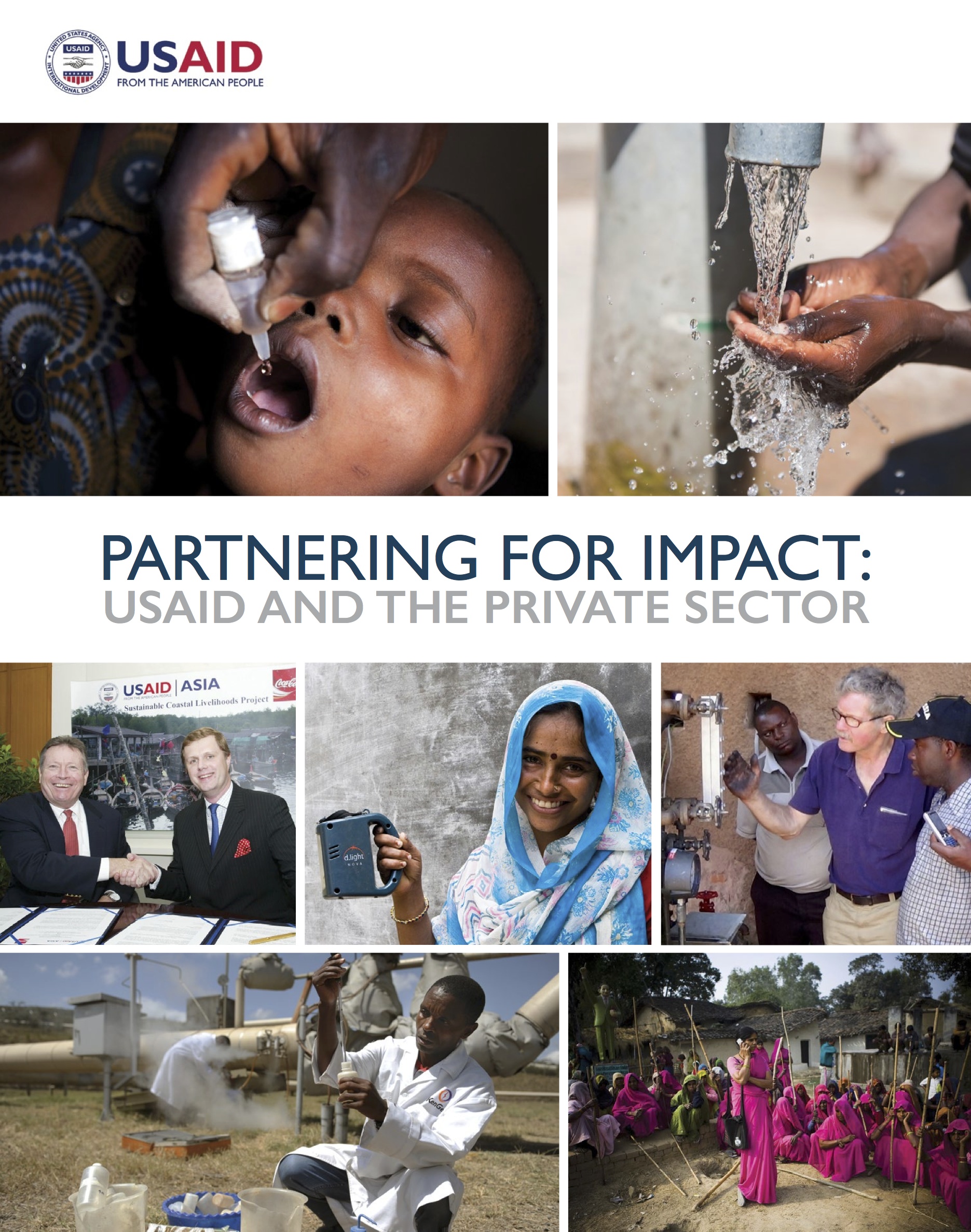USAID is working in partnership with both global and local organizations across nearly every sector and industry to find new solutions to global challenges.
Recognizing that no one organization or sector can solve the world's most intractable development challenges, USAID proactively seeks to build partnerships that leverage the combined skills, assets, technologies and resources of the public, private and nonprofit sectors to deliver sustainable development impact. Such partnerships enable us to achieve more working together than we ever could working alone.
Building partnerships with USAID starts with defining a shared vision of what we want to achieve together, and then co-creating a partnership that taps into the respective strengths of different partners. We believe the most effective partnerships are those in which risks, responsibilities and rewards are shared, and which address core interests of all parties involved.
We are passionate about working in partnership with a variety of partners -large multinational corporations, local businesses, universities, foundations, NGOs, diaspora groups, in-country partners, government agencies and other donors- to make a real difference in the lives of people across the world.
There are a variety of ways to partner with USAID. Global Development Alliances (GDAs) are USAID's premiere model for building partnerships with the private sector and other non-traditional partners. Through GDAs, USAID works with companies large and small, foundations, NGOs and implementing partners, diaspora groups, universities, and other donor agencies to address jointly defined objectives.
Related:
Development Credit Authority
Global Development Alliance
Partnership Opportunities
Accelerator
GDAs enable the Agency to leverage private sector markets, skills, technologies and assets in a manner that solves critical development problems and promotes effective market-led development. They also enable the private sector to leverage USAID's technical expertise, convening power, global presence and diverse network of stakeholder relationships in a manner that advances their goals. Information about past and current GDAs is available through USAID's public-private partnership database.
There are many other ways to build partnerships with USAID. For example:
- Our Bureau for Global Health, working closely with USAID missions, actively seeks partnerships with a broad group of actors from different sectors to help achieve our priorities, including an AIDS-free generation and ending preventable child and maternal deaths.
- In support of Feed the Future, our Bureau for Food Security builds partnerships in a number of areas that advance food security and agricultural development, including increasing productivity in key agricultural value chains, increasing incomes and market access of smallholder farmers, and catalyzing private sector investment for sustainable agricultural development.
- In education, USAID supports partnerships with educational institutions, foundations, nonprofits, the private sector and other donors to improve literacy in the primary grades; to increase access to education in countries affected by conflict or crisis; and to strengthen higher education and workforce development programs so young people can find good jobs and contribute to the economic growth of their countries. USAID looks to better harness the creativity and pioneering work of institutions of higher education, especially in the areas of science and technology to contribute to development solutions across our sectors.
- Individual USAID missions often issue their own calls for partnerships in areas that are aligned to their country strategies. A list of missions with current calls for partnerships under the GDA Annual Program Statement can be found here.
For more information on responding to specific solicitations throughout the Agency, visit our Search for Opportunities page or contact us.
Resources
Training On How To Work With USAID: Virtual training sessions that provide basics of how to find opportunities and effectively work with USAID.








Comment
Make a general inquiry or suggest an improvement.